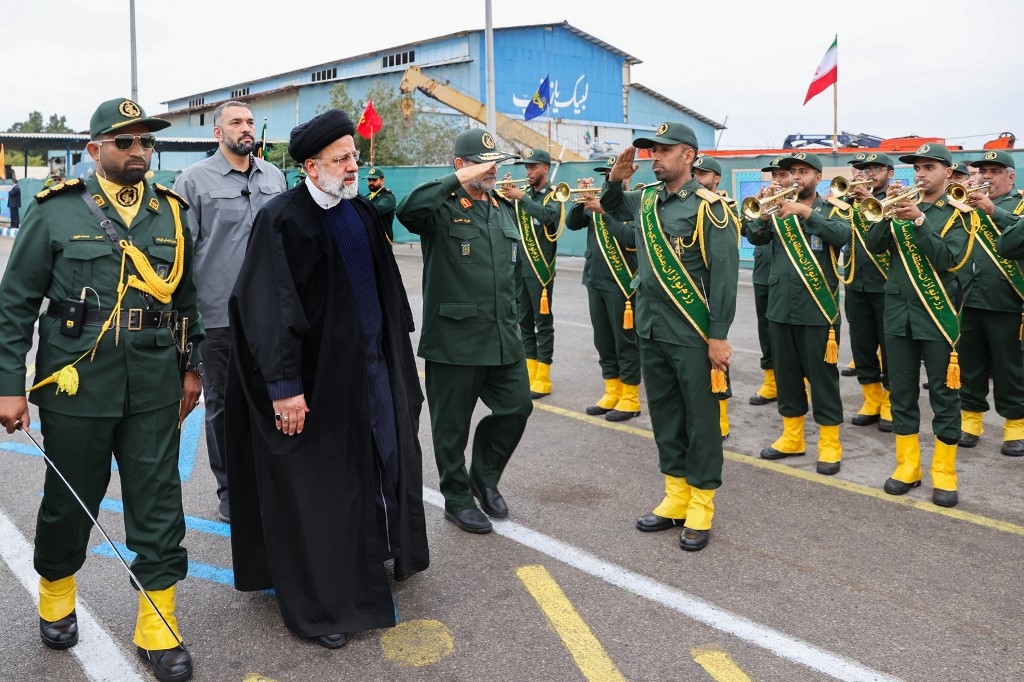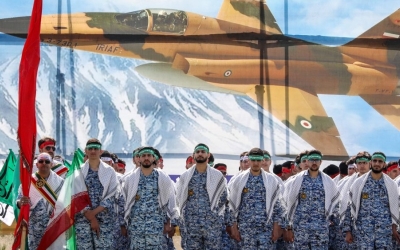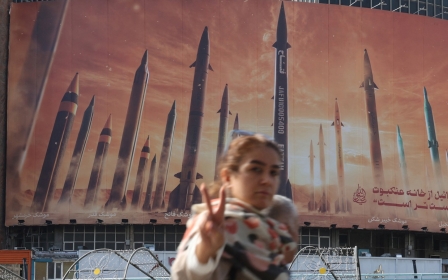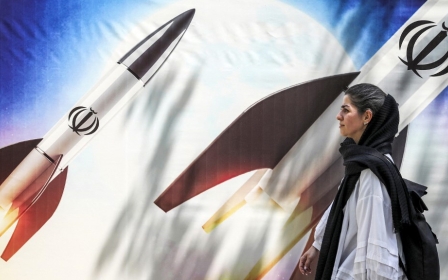UK politicians urge Rishi Sunak to ban Iran's Islamic Revolutionary Guard Corps

British parliamentarians on Thursday urged Prime Minister Rishi Sunak to proscribe Iran's Islamic Revolutionary Guards Corp (IRGC) in the wake of the country's attack on Israel.
In a letter from the All Party UK-Israel Parliamentary Group signed by MPS and members of the House of Lords, Sunak was called on to proscribe the organisation, which they said was responsible for "destructive terror" in the Middle East and beyond.
"The IRGC has never posed a greater threat than it does within the UK. A range of their activities have been publicly disclosed, causing significant concern across our nation," said the letter.
"These include assassination plots uncovered and foiled by MI5, intelligence gathering on British-Jewish targets by UK-based criminal networks, intimidation of journalists including Iranian journalists, and radicalisation in British Islamic centres," it added.
The signatories also linked the IRGC to the Hamas-led 7 October attacks in southern Israel which left at least 1,163 people dead, saying they were carried out by "proxies" of the organisation.
New MEE newsletter: Jerusalem Dispatch
Sign up to get the latest insights and analysis on Israel-Palestine, alongside Turkey Unpacked and other MEE newsletters
"The government has rightly proscribed Hamas and Hezbollah terror groups which have been an essential step in combatting extremism and terrorism here in the UK, but it is not enough," said the letter.
"Given that the IRGC is the primary source of ideological radicalisation, funding, equipment, and training for these dangerous groups, it is the responsibility of the government to act against the root cause as well."
New sanctions
On Saturday, Iran launched an attack against Israel consisting of around 170 drones, 30 cruise missiles and 120 ballistic missiles, according to Israeli officials.
The attack was in response to a 1 April air strike on Iran's consulate building in Damascus, Syria, which killed several people including three top Iranian military commanders.
A small number of ballistic missiles got through Israel’s defences, hitting the Nevatim airbase in southern Israel.
A young Palestinian Bedouin girl was critically wounded when shrapnel from an intercepted ballistic missile hit her family home near Arad, in the southern Negev region.
The drones and missiles were intercepted by Israel, the US, the UK, France and Jordan.
On Thursday, the US and UK said they had imposed new sanctions on Iran.
The US Treasury department said the measures targeted 16 individuals and two entities enabling Iran’s unarmed aerial vehicle (UAV) production.
That included targeting engine types that power Iran’s Shahed variant UAVs, which were used in the 13 April attack, as well as five companies providing component materials to Iran’s Khuzestan Steel Company (KSC), one of the country's largest steel producers.
Meanwhile, Britain imposed sanctions targeting Iranian military organisations, individuals and entities involved in in the UAV and ballistic missile industries.
Middle East Eye delivers independent and unrivalled coverage and analysis of the Middle East, North Africa and beyond. To learn more about republishing this content and the associated fees, please fill out this form. More about MEE can be found here.





